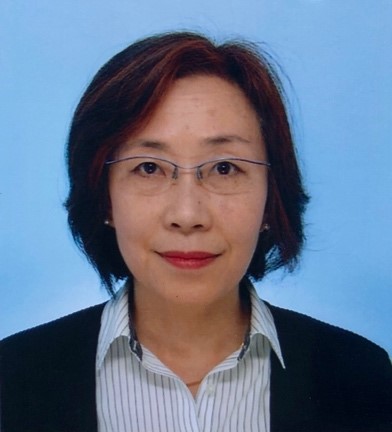Internationalising the ‘plural society’: Alternative transnational higher education in Malaysia
- Mayumi Ishikawa, Center for Global Initiatives, Osaka University
Event Materials
This event is now archived and we are pleased to provide the following event media and assets, along with the original event overview.

Conventional understanding of the internationalisation of higher education is primarily concerned with the transnational mobility of students from Global South to Global North, or the expansion of English-language programmes by emulating Western universities. This study, based on an ethnographic study of three international universities in Malaysia, explores the possibility of an alternative model of university internationalisation suited to specific post-colonial national and regional contexts. Such localised internationalisation is responsive to the emerging needs of students, families, communities and policymakers under globalisation.
The institutions studied are 1) the International Islamic University, 2) the first overseas branch of a major Chinese university, and 3) a medical university college operated by a global higher education enterprise headquartered in India. They offer programmes to attract a regional population seeking high-quality international education that is sensitive to aspirations, non-Western intellectual heritages, ethno-religious consciousness and emerging regional economic opportunities. They all take advantage of Malaysia’s multi-ethnic social fabric or ‘plural society’ (Furnivall, 1939), constructed during British colonial rule, to cultivate international ties and recruit students from their respective ethnic communities and beyond. They forge transnational partnerships with an Islamic organisation, overseas Chinese commercial networks in East and Southeast Asia, and a private Indian higher education provider known for its science and technology prowess. The desire for Islamic education amongst the sizable Muslim population, Chinese economic power, and a local/regional demand for private medical education also provide a strong ‘pull’ factor for students from outside the region.
There is broad policy support in Malaysia for the internationalisation of the national higher education system as a whole. Indeed, international education is promoted as part of the country’s strategic economic development plan and endorsed at the highest level of government. The study thus illuminates not only Malaysia’s changing multi-ethnic landscape under globalisation, but also the country’s globalisation strategy vis-à-vis its neighbouring giants, China and India.
About the CGHE webinar series on ‘The future of cross-border academic mobility’
In the last three decades there has been a tremendous advance in global connectedness in higher education, manifest especially in the flows of ideas and knowledge and the flows of people. According to the UNESCO data cross-border mobility has grown by a remarkable 5.65% per year since 1998 (see graph). It is especially important among graduate students: in the OECD countries in 2020, 14% of Masters enrolments and 24% of doctoral students were ‘international’ or ‘foreign’. In the first year of the pandemic in 2020, despite disruptions to travel and the tight regulation of inward movement in many countries, a record 6.4 million students crossed national borders to access degree programmes for one year or more. There is also a high volume of student movement for shorter periods, from a few weeks to a semester or more. We lack comparable data on faculty movement, but it is reasonable to assume that cross-border faculty mobility for both short visits and longer stays has increased at least as rapidly as student mobility. Much academic cooperation takes place online, but the collaborative relationships are typically established though conferences and face-to face project work. Friendly relations and immersion in cross-cultural experiences greatly facilitate practical cooperation.
Though we are still waiting on the data for 2023, it seems that robust growth of student mobility has resumed following the end of travel restrictions. Despite predictions during the pandemic of fundamental changes, with online education and new destinations expected to partly displace established patterns of student movement, the earlier patterns have largely resumed, even though the role of online delivery has grown. There is continued high demand for access to USA and UK, resuming their role as the ‘whitest of the white’, the global centres that attract investment in Whiteness as a portable cultural and economic attribute as was memorably discussed by Riyad Shahjahan and Kirsten Edwards in a paper in Higher Education in 2022. Australia is approaching its pre-pandemic enrolment level, and Canada continues to grow as a student destination. There is pronounced intra-regional travel within Europe supported by European mobility schemes as well as private financing, Germany and France remain major destinations on the world scale and Russia continues its role as a magnet for Central Asian students – though movement from Ukraine into Russia has been largely halted by the Russian invasion of Ukraine. There is a surge of enrolments coming out of India, illustrating its global demographic vitality and continuing its volatility as a student source country (another wave of investigations into migration scam practices in parts of the country is underway). There has also been pronounced growth in movement out of Nigeria and Saudi Arabia. Beyond the Euro-American West, though, inward mobility also continues to expand, and the global academic flows are slowly becoming more plural in terms of power of attraction. Inward movement in China, partly state-subsidised, may now resume its sharp upward trend: prior to the pandemic China had already become a very large student destination country. Regional mobility among countries in East and Southeast Asia continues to grow, and mobility within each of Latin America and Southern Africa is also significant.
Yet the climate is not as easy as it was and the long term is more uncertain than it was. Geopolitics (particularly the tension between USA and China) is slowing or blocking visa processing, for example Chinese doctoral students entering the US universities, and has the potential to slow the growth of cross-border education out of China into other Euro-American countries. There are also signs that Chinese demand for foreign education might be growing more slowly. There is populist pushback against international students in some Western European countries and government ministers continue to problematise education ‘exports’ in UK. Another set of issues has arisen around the ecological effects of plane travel. Work by Robin Shields and others has quantified the ecological impact of flights.
In this series successive presenters will bring their different research lenses to bear on the future of cross-border academic mobility. They will focus not only on trends and patterns in global, regional, national and local mobility but also on the many educational, cultural, institutional and policy issues that arise. These include the experiences and self-formation of mobile students and their agency/identity; their welfare as non-citizens and their encounters with discrimination; links between academic mobility and migration, and also the implications of academic mobility for internationalisation at home.
You need to register individually for each webinar in the series. You can register for the other webinars in the series here.
Event Materials
This event is now archived and we are pleased to provide the following event media and assets, along with the original event overview.
Event Notes
Please find the General Privacy Policy of UCL, one of our partner universities, here: https://www.ucl.ac.uk/legal-services/privacy/general-privacy-notice


